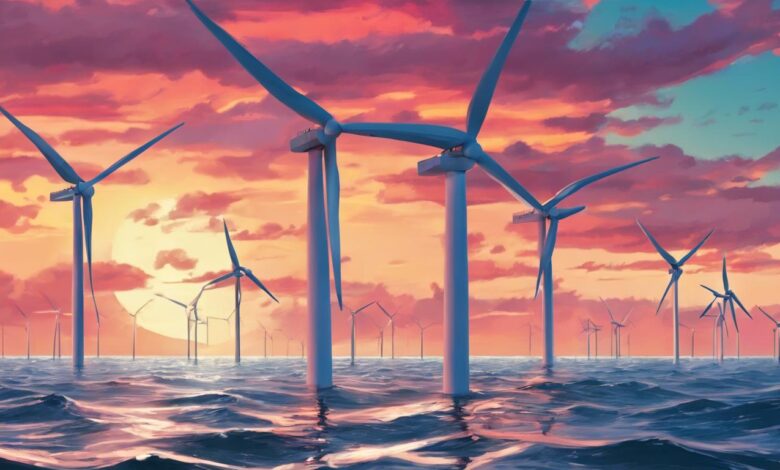Keir Starmer unveils Labour’s bold plan for floating offshore wind investment

Labour leader Sir Keir Starmer, during a visit to North Wales, has launched a plan to invest in floating offshore wind farms, including the establishment of a state-owned clean energy company, GB Energy, with an £8.3 billion budget.
Sir Keir Starmer, the leader of the Labour Party, has outlined a significant plan to prioritise investment in floating offshore wind farms as part of the UK’s transition to sustainable energy. His announcement, made during a visit to North Wales alongside Welsh First Minister Vaughan Gething, includes the establishment of GB Energy, a state-owned clean energy company. With an initial budget of £8.3 billion, GB Energy aims to propel the UK to the forefront of floating offshore wind technology and enhance national energy security.
The visit also took Starmer and his team, including Shadow Energy Secretary Ed Miliband, to the Port of Holyhead, where they discussed Labour’s dedication to reducing energy costs and creating job opportunities through investments in renewable energy. Despite facing criticism for scaling back a previously announced £28 billion green investment pledge, Labour officials, including Miliband, defended the plan’s focus on fiscal responsibility and its potential benefits.
GB Energy is set to be headquartered in Scotland and will primarily invest in renewable energy projects, especially floating offshore wind, to drive the growth of sustainable energy production by 2030. Labour believes that this initiative will not only support the UK’s environmental targets but also stimulate economic development and job creation.
Labour’s commitment to floating offshore wind technology has generated debate, with Conservative officials expressing concerns about the feasibility and funding of these ambitious plans. Energy Security Secretary Claire Coutinho criticized Labour’s proposal, warning of risks to energy security and the economy. In contrast, Labour leaders argue that their plan, funded through a windfall tax on oil and gas producers and strategic borrowing, is a responsible and necessary step towards achieving energy security and net zero emissions.
The focus on floating offshore wind aligns with the existing target set by the Conservative government to achieve 5GW of floating offshore wind capacity by 2030. Industry experts and advocates for renewable energy have lauded the potential of floating wind technology to contribute significantly to the UK’s energy future, emphasizing the need for government support to realize these ambitions.








